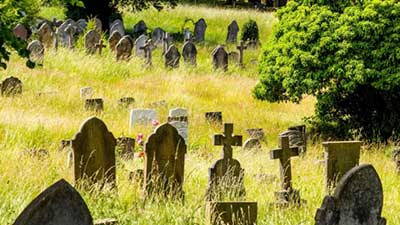Nine times in Genesis 5 we read, “and he died.” Adam, Seth, Enosh. Kenan… each of these lived some nine hundred years! But in every case their story closes with, “and he died.” The last person in Genesis 5 is Noah, whose final epitaph is delayed until 9:29—“and he died.”
Why did the author stress so pointedly that each one died? Perhaps it was so that Enoch’s story would stand out. (You’ll remember that Enoch so walked with God that He took him on to heaven without having to see death.) But perhaps God wrote it this way to underscore the staggering consequence of disobedience: “for in the day that you eat of it, you shall surely die” (Genesis 2:17). Though it tarries, wait for it; it will surely come (Habakkuk. 2:3).
For whom does the bell toll? “It tolls for thee,” wrote John Donne. And Genesis 5 is an unmistakable reminder that we, too, will die. No one escapes. We’d better have our spiritual house in order.
Friend, are you “all in” with Jesus Christ? Should the bell toll for thee today would He count you one of His forgiven followers?
What about your loved one, friend, or associate? Do they need you to lovingly guide them to the Savior’s cleansing and rebirth?
Before we leave this theme, let’s fast-forward to the New Testament. In a beautiful irony, we come again to that exact phrase, “and he died.” But this time it has LIFE and LOVE and HOPE written all over it:
and He died for all,
so that they who live
might no longer live for themselves,
but for Him who died
and rose again on their behalf.
(2 Cor. 5:15)
